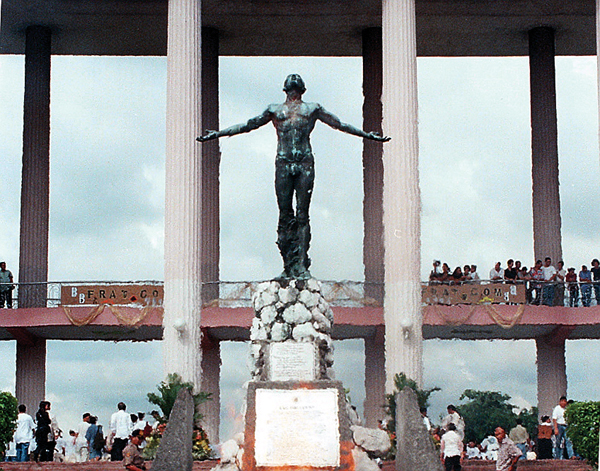
INQUIRER FILE PHOTO
MANILA, Philippines — A youth group has demanded the Commission on Higher Education (CHEd) to include more education experts and not just police and military officials in the panel that would review the 1989 University of the Philippines (UP)-Department of National Defense (DND) Accord.
The Samahan ng Progresibong Kabataan (Spark) said CHEd Chairperson Prospero De Vera should not leave behind education experts in the UP-DND agreement discussions.
“Might we ask De Vera, what qualifies the generals of the AFP and PNP as ‘education experts’ that justifies them having a role, a determining role at that, in defining academic freedom?” Spark national chairperson John Lazaro asked in a statement issued Wednesday.
“To add, why should they be included in a discussion about academic freedom, while the real stakeholders, the students, professors, and school employees are left out of the discussion?”
DND Secretary Delfin Lorenzana unilaterally revoked last week the UP-DND pact, which requires prior notice by state forces before entering UP campuses.
Spark also doubted whether DND’s action to suddenly repeal the accord and the inclusion of police and military in the discussions might be a way to militarize schools in the country.
“The government is hell-bent on militarizing the entire academic community to meet the objectives of their Internal and Security Plan,” Lazaro claimed. “We could not think of a greater contradiction than asking military officers to define academic freedom for the academic community. This is not just campus militarization, but concept militarization.”
“As we have continually said, without the input of key stakeholders, this discussion is bound to result in more militarization and repression,” he added.
After the UP-DND deal was terminated, De Vera — also chair of the UP Board of Regents — offered to serve as mediator in a dialogue between the government’s security cluster and UP officials and stakeholders to address issues surrounding the security agreement.
According to De Vera, the 1989 UP-DND Accord was “destined to be problematic” because of its vague provisions.
“As a faculty member of UP for close to four decades, as Vice President for 5 years and Chairman of the Board of Regents for 4 years, I assert that the implementation of the DND-UP Accord was destined to be problematic,” he said in a statement last January 22.
INQUIRER.net asked De Vera for his comments on Spark’s assertions, but has yet to receive his reply as of posting time.
Meanwhile, UP Diliman Professors Emeriti wrote De Vera and registered their “protest in the strongest terms” against the one-sided cancellation of the UP-DND agreement.
“We find no compelling reason why this agreement, which largely served its intended purpose for over 30 years, should now be abrogated without at least consultation owed to the parties that signed and implemented it in good faith,” they said in the letter.
“The DND’s characterization of UP as a ‘safe haven for terrorists’ and its attempt to hold the entire university responsible for the death of some of its students at the hands of government forces ignores a much larger aspect of UP that has consistently striven for peace, justice, and development in our society,” the added.